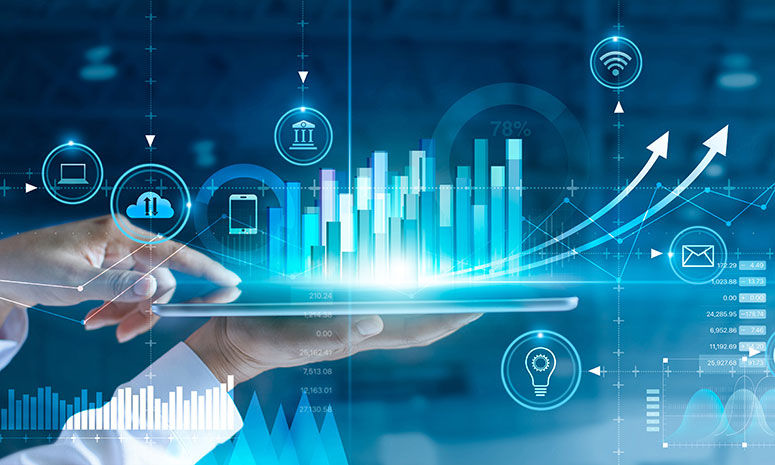Embracing the Future: A Comprehensive Guide to Data Science
- Purva Yadav

- Jun 1, 2024
- 3 min read

In an age where data is often considered the new oil, data science stands at the forefront of technological and business innovation. From improving decision-making processes to predicting future trends, data science has revolutionized the way organizations operate. This comprehensive guide explores the essence of data science, its methodologies, tools, and the transformative impact it has on various industries.
Understanding Data Science
Data science is an interdisciplinary field that combines statistics, computer science, and domain expertise to extract actionable insights from data. Among the fundamental elements of data science are:
Data Collection: Gathering raw data from various sources such as databases, online repositories, and sensors.
Data cleaning: To guarantee data quality, remove noise and inconsistencies.
Data Analysis: Using statistical methods to uncover patterns and relationships.
Data Visualization: Representing data graphically to make insights more understandable.
Machine Learning: Applying algorithms to make predictions or classify data.
Data Interpretation: Translating data insights into actionable business strategies.
The Data Science Process
The data science process typically follows a structured approach known as the data science lifecycle:
Problem Definition: Clearly articulating the business problem or question to be addressed.
Data Acquisition: Identifying and collecting relevant data from internal and external sources.
Data Preparation: Cleaning and transforming data to ensure its suitability for analysis.
Exploratory Data Analysis (EDA): Conducting initial investigations to discover patterns, spot anomalies, and check assumptions.
Modeling: Building predictive models using machine learning algorithms.
Evaluation: Assessing the performance of the models using various metrics.
Deployment: Implementing the model in a real-world environment.
Monitoring and Maintenance: Continuously tracking the model’s performance and making necessary adjustments.
Key Tools and Technologies in Data Science
To do their jobs well, data scientists use a wide range of tools and technology. Among the instruments that are most frequently used are:
Programming Languages: Python and R are the most popular languages for data science due to their rich ecosystem of libraries and frameworks.
Data Manipulation: Libraries such as Pandas and NumPy in Python allow for efficient data manipulation and analysis.
Data Visualization: Tools like Matplotlib, Seaborn, and Tableau help create compelling visual representations of data.
Machine Learning: Scikit-learn, TensorFlow, and PyTorch are widely used for building and deploying machine learning models.
Big Data Technologies: Apache Hadoop and Spark facilitate the handling of large datasets that traditional tools cannot manage.
Databases: SQL, NoSQL, and NewSQL databases store and retrieve large volumes of structured and unstructured data.
Applications of Data Science
Data science is ubiquitous, with applications spanning numerous industries:
Healthcare: Enhancing patient care through predictive analytics, personalized medicine, and early disease detection.
Finance: Algorithmic trading, risk management, and fraud detection.
Retail: Personalizing customer experiences, optimizing supply chain management, and predicting sales trends.
Marketing: Sentiment analysis, customer segmentation, and targeted advertising.
Transportation: Autonomous cars, predictive maintenance, and route optimization.
Manufacturing: Supply chain optimization, predictive maintenance, and quality control.
Challenges in Data Science
Despite its transformative potential, data science faces several challenges:
Data Privacy and Security: Ensuring the privacy and security of sensitive data is paramount.
Data Quality: Incomplete or inaccurate data can lead to erroneous conclusions.
Skill Gap: The demand for skilled data scientists often outstrips supply.
Interdisciplinary Collaboration: Effective data science projects require collaboration between domain experts, data scientists, and IT professionals.
Ethical Considerations: Ensuring that data science practices do not inadvertently harm individuals or groups.
The Future of Data Science
The future of data science is promising, with several emerging trends shaping its evolution:
Artificial Intelligence Integration: The convergence of AI and data science will lead to more sophisticated predictive models and automation.
Automated Machine Learning (AutoML): Tools that automate the end-to-end process of applying machine learning will become more prevalent.
Explainable AI: There will be a greater emphasis on making AI models interpretable and transparent.
Edge Computing: Processing data closer to where it is generated will reduce latency and improve efficiency.
Quantum Computing: Quantum computers have the potential to solve complex data science problems that are currently infeasible with classical computers.
Conclusion
Data science is an ever-evolving field that holds the key to unlocking new insights and driving innovation across industries. By understanding its core principles, methodologies, and tools, organizations can harness the power of data to make informed decisions and achieve sustainable growth. As we continue to advance technologically, embracing data science will be crucial in navigating the complexities of the modern world and delivering value to society at large.
Whether you are a budding data scientist, taking a Data Science course in Navi Mumbai, Mumbai, Thane, Delhi, Noida and other cities or a business leader looking to leverage data, the journey towards mastering data science is both challenging and rewarding. Equip yourself with the right knowledge, stay abreast of emerging trends, and always prioritize ethical considerations in your data science endeavors. Together, we can shape a future where data-driven decisions lead to unparalleled success and innovation.



Comments